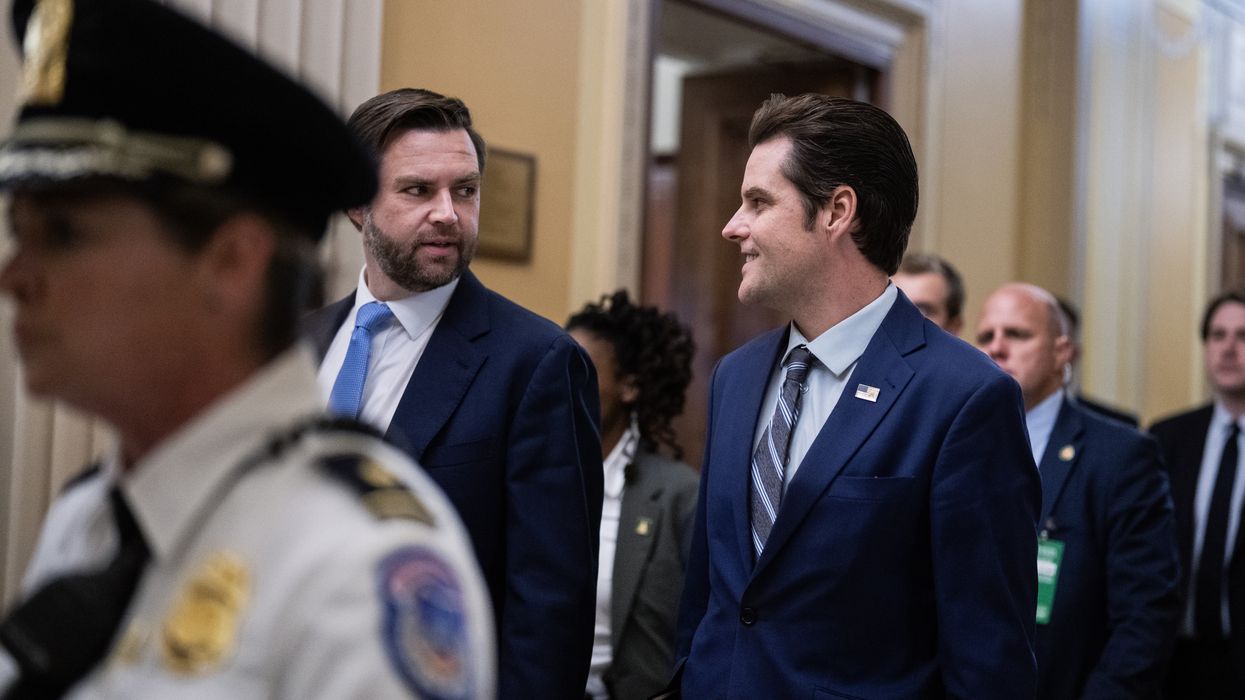“Kakistocracy” is trending again.
The obscure term, coined as early as the 17th century and defined by Merriam-Webster as “government by the worst people,” has surged on Google Trends since the election.
What does government by the worst look like? To the cynical, that question may call to mind Dorothy Parker’s famous response to the news that former President Calvin Coolidge had died: “How could they tell?”
Of late, the words “kakistocracy” and “kakistocrat” have started popping up again, a return of a trend from President Donald Trump’s first administration.
My guess is that the new currency of the term has much to do with Trump’s first wave of cabinet nominees for his second administration.
For example, many were incredulous when Trump named now-retired Rep. Matt Gaetz, the Florida Republican, to be attorney general, the nation’s top law enforcement officer. Gaetz subsequently withdrew his nomination amid discussion over whether the House Ethics Committee should make public the findings of its investigation of his alleged sexual misconduct and illicit drug use.
Hours after Gaetz withdrew, Trump named Pam Bondi, Florida’s former attorney general, to replace Gaetz, much to the relief of Senate Republicans, who were less than enthusiastic about having to vote to confirm a man accused (although Gaetz denies the claims) of having a sexual relationship with a 17-year-old girl.
Gaetz was by no means the only Trump nominee who has generated controversy.
Among others, all eyes turned to take a closer look at Pete Hegseth, the former Fox News host Trump proposed to be secretary of defense. Hegseth, a veteran of wars in Iraq and Afghanistan, has been accused of sexually assaulting a woman at a political conference in California. He also lacks experience at leading an organization anywhere near as huge and complex as the Defense Department.
Then there is Robert F. Kennedy Jr., whom Trump has picked to head the Department of Health and Human Services. Kennedy is long known for his conspiracy theories about vaccines, COVID-19 and AIDS — and, according to the Washington Post, he has big proposals in mind to change the way Medicare pays physicians.
Trump also tapped television personality Dr. Mehmet Oz (“Dr. Oz" of TV fame) to head the Centers for Medicare and Medicaid Services. Not surprisingly, Oz’ nomination caused consternation among some members of Congress. Critics fear he will expand the privatization of the Medicare system, and he has appeared in advertisements for Medicare Advantage providers in the private sector. Senators are well aware of how politically sensitive any changes in Medicare policy would be. In Capitol Hill wisdom, it’s a “third rail” issue — "Touch it and you die.”
Why would the incoming president invite controversy by fiddling with popular healthcare programs? Hardly any one would accuse Trump of humility in confronting big issues, whether he shows much knowledge of what he can do.
I am reminded of his lavish promises in his first presidential administration to repeal and replace the Affordable Care Act, better known as Obamacare, until the program turned out to be a lot more popular than he had figured. Now he promises to improve the program, although he prudently avoids getting into specifics on how he plans to do that.
Shortly before the 2024 election, Trump transition co-chairman Howard Lutnick, now tapped to be secretary of commerce, took the time to promise that Kennedy would not be put in charge of HHS. The news came as a big relief to many, while we also wait to see what other duties Trump might find for him.
I recall a similar cloak of secrecy and uncertainty that surrounded the beginning of Trump’s first term.
Speculation abounds in Washington and Silicon Valley regarding another newcomer Trump has invited into the Washington scene: the colorful Elon Musk, richest man in human history.
With roughly 200 million followers on X, the social network formerly known as Twitter, Musk is a Digital Age media baron to reckon with. He’s also a major player in the space exploration and satellite communications business sectors, with sizable and highly important contracts with the U.S. government. And he’s the owner of a major car company (and the only one outside China that has figured out how to make a profit on electric vehicles).
In other words, Musk is setting off warning bells for those who worry about cronyism in government. Especially since Trump took up Musk’s idea for a yet to be formed Department of Government Efficiency (DOGE), to be charged with cutting government waste.
A lot of Americans like the sound of cutting waste in Washington, but politically it’s tricky to carry off successfully. And if, as Trump has suggested, DOGE will be run by Musk and GOP presidential candidate Vivek Ramaswamy, good-government advocates had better strap in for the next four years. It’s going to be a bumpy ride.
Page is an American journalist, syndicated columnist and senior member of the Chicago Tribune editorial board.
©2024 Tribune Content Agency. Distributed by Tribune Content Agency, LLC.



















Trump & Hegseth gave Mark Kelly a huge 2028 gift